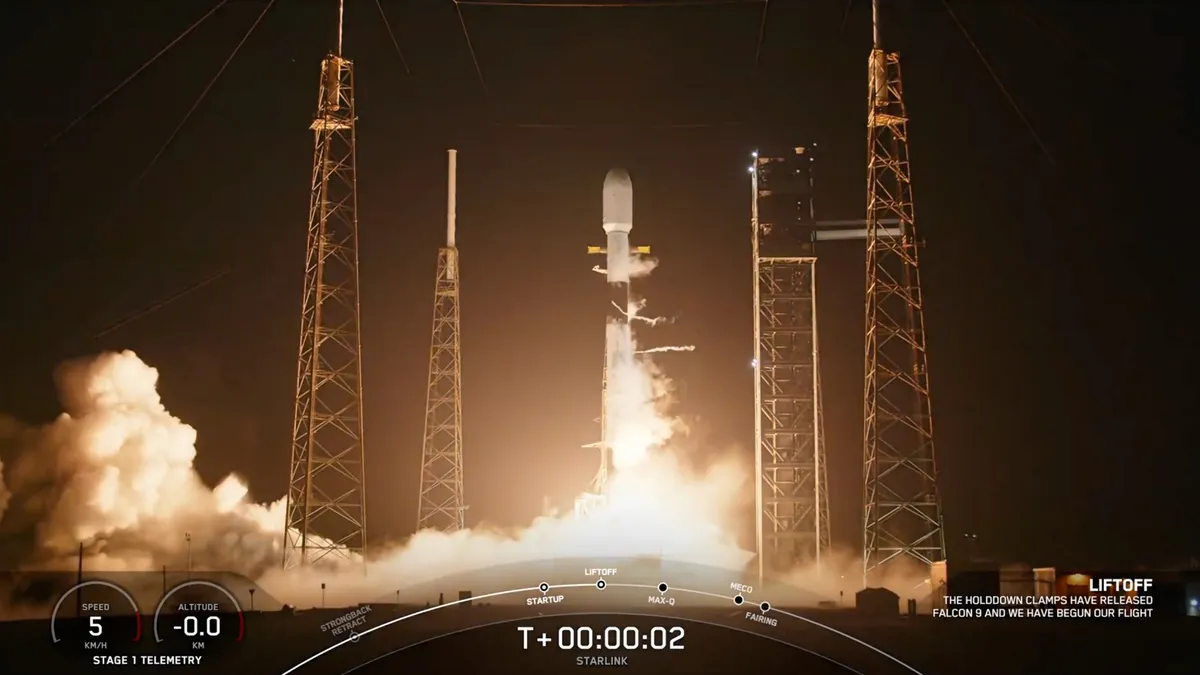
This morning, on May 10, SpaceX successfully launched yet another batch of its Starlink internet satellites from Florida's Space Coast. This launch marks the company's second mission in just over six hours, showcasing SpaceX's commitment to expanding its satellite internet service. The Falcon 9 rocket lifted off from Cape Canaveral Space Force Station at precisely 2:28 a.m. EDT (0628 GMT).
The launch closely followed another successful Starlink mission that took place on the evening of May 9 from California's Vandenberg Space Force Base. The rapid succession of these launches illustrates SpaceX's efficient operational capabilities in deploying its satellite network.
Approximately eight minutes after liftoff, the Falcon 9's first stage executed a flawless landing on the drone ship A Shortfall of Gravitas located in the Atlantic Ocean. This particular booster achieved its 11th flight, as reported by SpaceX, highlighting the company's focus on reusability to reduce launch costs.
While the first stage was returning to Earth, the Falcon 9's upper stage continued its journey, carrying a total of 23 Starlink satellites to low Earth orbit (LEO). These satellites are scheduled for deployment approximately 65 minutes post-launch, further contributing to the ongoing expansion of SpaceX's satellite network.
Today's launch marks the 55th Falcon 9 launch of 2025, with 38 of those missions specifically aimed at enhancing the Starlink project. This ambitious initiative has made significant strides in establishing the largest satellite constellation ever assembled, which currently includes over 7,300 operational satellites. SpaceX continues to add more satellites to this constellation, paving the way for improved global internet coverage.
As SpaceX progresses with its Starlink internet service, the company aims to provide high-speed internet access to even the most remote areas around the globe. The rapid deployment of additional satellites is a crucial step in achieving this goal, making internet connectivity available to millions who currently lack reliable service.